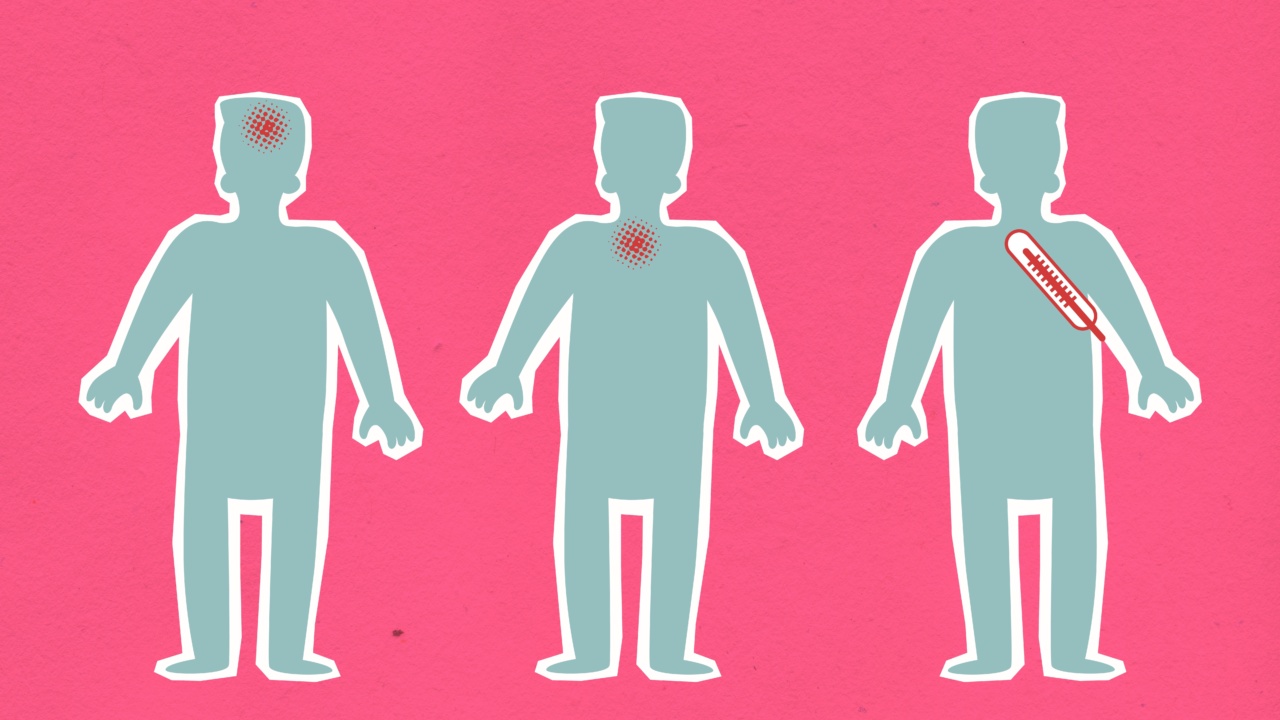Almost everyone has experienced or will experience a sore throat at some point in their life. A sore throat can be caused by a wide range of factors that can range from harmless to potentially serious.
Here are 30 reasons why your throat may be sore and how to treat them.
1. Viral Infection
One of the most common causes of a sore throat is a viral infection, such as the common cold, flu, or mononucleosis. These infections are usually harmless and will resolve on their own within a week or two.
2. Bacterial Infection
Some infections, such as strep throat or tonsillitis, are caused by bacteria. These infections can be more severe than viral infections and may require antibiotics to treat.
3. Allergies
Allergies to pollen, mold, or pet dander can cause a scratchy or sore throat. Treating the underlying allergy may help to alleviate symptoms.
4. Dry Air
Dry air can cause the lining of the throat to become dry and inflamed, leading to a sore throat. Using a humidifier can help to add moisture to the air and reduce symptoms.
5. Acid Reflux
Acid reflux, also known as gastroesophageal reflux disease (GERD), can cause irritation and inflammation of the throat. Treatment may involve lifestyle changes or medication.
6. Smoking
Smoking and exposure to secondhand smoke can irritate the throat and lead to a sore throat. Quitting smoking can help to improve symptoms.
7. Drinking Alcohol
Drinking alcohol can dehydrate the body and cause inflammation in the throat, leading to a sore throat. Limiting alcohol intake or avoiding it altogether may help to alleviate symptoms.
8. Sinus Infection
A sinus infection can cause mucus to drip down the back of the throat, leading to a sore throat. Treatment may involve antibiotics or decongestants.
9. Tonsil Stones
Tonsil stones are small, hard deposits that can form in the tonsils and cause irritation and inflammation of the throat. Treatment may involve removing the tonsils or removing the stones with a cotton swab or water irrigation.
10. Post-Nasal Drip
Post-nasal drip occurs when mucus from the nose drips down the back of the throat, leading to a sore throat. Treatment may involve using a nasal spray or decongestant.
11. Mouth Breathing
Mouth breathing can cause the throat to become dry and inflamed, leading to a sore throat. Treating the underlying cause of mouth breathing may help to alleviate symptoms.
12. Canker Sores
Canker sores are painful ulcers that can develop in the mouth and throat, causing a sore throat. Treatment may involve using a mouthwash or topical ointment.
13. Chemotherapy
Chemotherapy can cause inflammation and irritation of the throat, leading to a sore throat. Treatment may involve pain medication or symptom management.
14. Radiation Therapy
Like chemotherapy, radiation therapy can cause inflammation and irritation of the throat, leading to a sore throat. Treatment may involve pain medication or symptom management.
15. Vocal Strain
Overuse of the voice, such as singing, speaking loudly, or yelling, can strain the vocal cords and cause a sore throat. Resting the voice and avoiding vocal strain may help to alleviate symptoms.
16. Inhaling Irritants
Inhaling irritants, such as smoke or chemicals, can irritate the throat and cause a sore throat. Avoiding exposure to these irritants may help to alleviate symptoms.
17. Tonsillitis
Tonsillitis is an infection of the tonsils that can cause inflammation and swelling of the throat. Treatment may involve antibiotics or the surgical removal of the tonsils.
18. Influenza
Influenza, commonly known as the flu, is a viral infection that can cause a sore throat along with other symptoms such as fever and body aches. Treatment may involve antiviral medication or symptom management.
19. Streptococcal Pharyngitis
Streptococcal pharyngitis, also known as strep throat, is a bacterial infection that can cause a sore throat along with other symptoms such as fever and difficulty swallowing. Treatment involves antibiotics.
20. Mono
Mononucleosis, or mono, is a viral infection that can cause a sore throat along with other symptoms such as fatigue and swollen glands. Treatment may involve rest and symptom management.
21. Epiglottitis
Epiglottitis is a rare and potentially life-threatening condition that can cause inflammation of the epiglottis and lead to a sore throat and difficulty breathing. Treatment involves hospitalization and antibiotics.
22. Candidiasis
Candidiasis, also known as thrush, is a fungal infection of the mouth and throat that can cause a sore throat. Treatment involves antifungal medication.
23. Gastroesophageal Reflux Disease (GERD)
GERD, also known as acid reflux, can cause a sore throat along with other symptoms such as heartburn and difficulty swallowing. Treatment may involve lifestyle changes or medication.
24. Laryngitis
Laryngitis is an inflammation of the larynx that can cause a sore throat along with other symptoms such as hoarseness and difficulty speaking. Treatment involves resting the voice and symptom management.
25. Herpes Simplex Virus
The herpes simplex virus can cause a sore throat along with other symptoms such as fever and blisters around the mouth. Treatment involves antiviral medication.
26. HIV/AIDS
HIV/AIDS can cause a weakened immune system, which can increase the risk of infections that can cause a sore throat. Treatment may involve antiviral medication and symptom management.
27. Kawasaki Disease
Kawasaki disease is a rare condition that can cause inflammation and swelling of the blood vessels, leading to a sore throat along with other symptoms such as fever and rash. Treatment involves hospitalization and medication.
28. Leukemia
Leukemia can cause a weakened immune system, which can increase the risk of infections that can cause a sore throat. Treatment may involve chemotherapy and symptom management.
29. Lupus
Lupus is an autoimmune disease that can cause inflammation and pain in various parts of the body, including the throat. Treatment involves medication and symptom management.
30. Sjogren’s Syndrome
Sjogren’s syndrome is an autoimmune disorder that can cause dryness of the mouth and throat, leading to a sore throat. Treatment involves managing symptoms and increasing fluid intake.



























